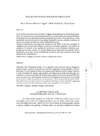Identificador persistente para citar o vincular este elemento:
https://accedacris.ulpgc.es/jspui/handle/10553/71743
| Campo DC | Valor | idioma |
|---|---|---|
| dc.contributor.author | Moreira Gregori, Pedro Ernesto | en_US |
| dc.contributor.author | Rosa López, Pablo Rafael de la | en_US |
| dc.date.accessioned | 2020-04-28T09:16:38Z | - |
| dc.date.available | 2020-04-28T09:16:38Z | - |
| dc.date.issued | 2013 | en_US |
| dc.identifier.issn | 2171-4924 | en_US |
| dc.identifier.other | Dialnet | - |
| dc.identifier.uri | https://accedacris.ulpgc.es/handle/10553/71743 | - |
| dc.description.abstract | En un entorno latinoamericano favorable, Uruguay está pasando por un momento de expansión y de crecimiento en la economía sin precedentes. Los indicadores de mejora del bienestar social demuestran esta situación expansiva y de significativo avance. De todas formas, se están sucediendo una serie de cambios y paradojas impensables hace una década; estaríamos tal vez ante una transición hacia una nueva configuración social. Tomamos inicialmente como punto de referencia el año 2002; en ese año se produjo un verdadero crack, un punto de inflexión no sólo en la economía uruguaya, sino también un cambio en lo cultural, en los modelos de convivencia, en las referencias simbólicas compartidas por las clases sociales. Se estarían dando nuevos fenómenos de exclusión social y polarización entre clases, en una sociedad que a pesar de todo sigue siendo una de las más equitativas de Latinoamérica. | en_US |
| dc.description.abstract | n an expansive Latin American context, Uruguay is going through a moment of growth and economic expansion without precedent. The improvement of social indicators shows this expansive and significant growth phase. However, a series of unexpected changes and paradoxes are happening nowadays; perhaps due to a transition to a new social setting. We initially took as a point of reference the year 2002; that year was a real crack, a turning point not only in the Uruguayan economy, but also a change in the cultural models of coexistence, in the symbolic references shared by the social classes.New phenomena of social exclusion and polarization between classes would be happening now in a society that still remains one of the most equitable in Latin America. | en_US |
| dc.language | spa | en_US |
| dc.relation.ispartof | Revista Atlántida (La Laguna) | en_US |
| dc.source | Revista Atlántida: Revista Canaria de Ciencias Sociales[ISSN 2171-4924] (1), p. 147-162 | en_US |
| dc.subject | 6307 Cambio y desarrollo social | en_US |
| dc.subject.other | Cambios sociales | en_US |
| dc.subject.other | Uruguay | en_US |
| dc.title | Hacia una nueva sociedad uruguaya | en_US |
| dc.type | info:eu-repo/semantics/Article | en_US |
| dc.type | Article | en_US |
| dc.identifier.url | http://dialnet.unirioja.es/servlet/articulo?codigo=5245381 | - |
| dc.description.lastpage | 162 | en_US |
| dc.identifier.issue | 1 | - |
| dc.description.firstpage | 147 | en_US |
| dc.investigacion | Ciencias Sociales y Jurídicas | en_US |
| dc.type2 | Artículo | en_US |
| dc.contributor.authordialnetid | 3411785 | - |
| dc.contributor.authordialnetid | No ID | - |
| dc.identifier.dialnet | 5245381ARTREV | - |
| dc.utils.revision | Sí | en_US |
| dc.identifier.ulpgc | Sí | es |
| dc.description.erihplus | ERIH PLUS | |
| item.grantfulltext | open | - |
| item.fulltext | Con texto completo | - |
| crisitem.author.dept | GIR TIDES: Investigación en Turismo y Transporte | - |
| crisitem.author.dept | IU de Turismo y Desarrollo Económico Sostenible | - |
| crisitem.author.dept | Departamento de Psicología, Sociología y Trabajo Social | - |
| crisitem.author.orcid | 0000-0003-1985-5394 | - |
| crisitem.author.parentorg | IU de Turismo y Desarrollo Económico Sostenible | - |
| crisitem.author.fullName | Moreira Gregori, Pedro Ernesto | - |
| Colección: | Artículos | |
Visitas
51
actualizado el 27-ene-2024
Descargas
18
actualizado el 27-ene-2024
Google ScholarTM
Verifica
Comparte
Exporta metadatos
Los elementos en ULPGC accedaCRIS están protegidos por derechos de autor con todos los derechos reservados, a menos que se indique lo contrario.
